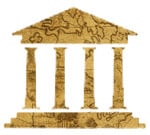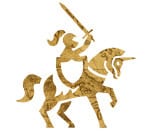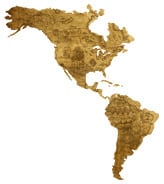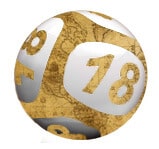
Lottery games have been popular for several decades and have retained the excitement. People buy tickets with great anticipation to be winners and bag a lot that might change their fortunes. Below we have summarized the type phases of lottery over the years and some stories that have changed fortunes for people from different corners of the globe.

Find out the history of lottery games!
Taking a walk back in time, the history of the lottery goes back to Biblical times. One finds mention of lotteries in the Old Testament when games of chance were played for settling legal disputes, allocating unpopular jobs, and assigning property rights. There are traces of evidence of raffle games being played in ancient Greece, as per Greek mythology.
Lotteries and sweepstakes were very much rife in the ancient civilizations of Asia. Especially in China and Japan, chance games served to forecast the future. However, after the propagation of Islam in the Middle East, the holding of sweepstakes was embargoed as the Koran completely proscribed gambling of any kind. Nevertheless, it was during the ancient Roman Civilization that lotteries were organized and played along somewhat similar lines as they are conducted nowadays.
Roman emperors and nobilities belonging to the times when the Holy Roman Empire thrived held lotteries purely for entertainment purposes. Sweepstakes made a comeback in Europe towards the late fifteenth and early sixteenth centuries when games were held largely for raising revenues to finance numerous state activities. Since then, lotteries have held their own as games in different formats have been held in different countries that continue till today.
Lotteries have a key role to play in the modern economy. Not only do raffles contribute to the national exchequer but also fulfil social causes at the same time. A specific percentage or proportion of the money raised from the sale of tickets is earmarked for charitable causes. Though almost everybody has a basic idea about the lottery and how the same is organized, the majority may not be in the know about the coinage of the word or expression.
Tracing the origin or etymology of the word, ‘lottery’ is an excellent way of creating a timeline concerning the history of lottery games. Looking up the dictionary for the word, its etymology divulges that the term is derived from the German expression, ‘hleut’ which translates to ‘lot’ in English and ‘los’ in French. The connotation of the German ‘hleut’ implies the allocation of a part or lot from a whole.
As per another version, the word originated from the Dutch lingo, ‘lot’ which means ‘fate’ signifying that the lottery is a game of luck or chance.
The history of lottery games, as these are played worldwide nowadays where the winner is required to match all the numbers picked up in a draw, can be traced back millenniums. To be precise, the most primitive lottery game format can be sourced back to a period between 205 BC and 187 BC when the Han Dynasty flourished in China. The game type known as ‘Keno’ has endured through the ages as it is played even to this day in several casinos around the world.

Archives dating back to those times suggest that the proceeds from the lottery games were diverted for the construction of the ‘Great Wall of China’. Going numerous centuries back in time in the history of lottery in Europe, sweepstake games were prevalent in the Roman Empire. However, as far as lottery games in the Roman Empire were concerned, these were mostly played at the dinner parties of the royalty solely for entertainment.
As per the game format, every participant would get a ticket that was tied to a specific prize or reward-so everybody was a winner. The first time a game was held commercially in the Roman Empire where the public bought tickets was during Augustus Cesar’s reign (27BC-14AD). Funds collected from the raffle went into revamping Rome capital of the Holy Roman Empire.
Centuries before, during the Biblical period, it was believed that Moses held a lottery for disbursing land lying on the western side of the Jordan River. Nevertheless, it was the Roman emperors who first organized lotteries orientated around chance. Initially, chance served as oracles where tiles etched with messages were pulled out of a pool. The messages were decoded to reply to the queries forwarded to the oracle. Later on, Emperors Augustus and Nero arranged sweepstakes where prizes were distributed to lucky winners in the form of gifts like real estate, ships, slaves, and so on.
However, the history of lottery games in Europe is much more modern as the game of chance started becoming popular in the early phase of the sixteenth century. The most primitive versions of commercial national and multistate lotteries held presently in Europe and North America were first used by Italian traders in medieval times. Flanders, (the Dutch-speaking region of northern Belgium in the 15th century) witnessed a reemergence of the sweepstakes.
Two centuries ago, spaces or areas in the market were distributed in Brussels using the lottery system. Slowly and gradually, sweepstakes began to be arranged regularly in the Netherlands and Belgium from the 15th century onwards leading to the development and popularization of the word, ‘lot’. This Dutch word was the predecessor of the modern expression of ‘lottery’.
Lotteries became popular once again in Italy when raffles were held in Milan to amass funds for financing a battle against Venice. A randomized draw was organized in Genoa where the public was asked to wager on the 5 lucky council members out of 90 who would be finally chosen to receive offers. This lottery mode was held in Genoa twice annually and later on the councilors’ names were replaced with numbers.
The raffle in Genoa was probably the first sweepstake where the participants were required to randomly select a set of numbers. This game still thrives in Italy under the title, ‘SuperEnalotto’ where 6 numbers are picked up at random from a pool of 90 numerals. Any player whose numbers match with the winning combination, as well as lie juxtaposed in a straight line, wins the jackpot.
In England, raffles were initially played in the 2nd decade of the 17th century to finance British voyages to North America. King James I of England started a sweepstake to finance the first permanent colony in North America, Virginia. Since then, organizations in the public as well as private sector have organized lotteries to pool money for building towns, parishes, colleges, turnkey projects, and for waging wars.
The first nationwide state lottery in England was held in 1569 where the number balls were pulled out by Queen Elizabeth. The total purse to be distributed corresponded with the amount collected via ticket sales, and the bonanza prizes were the most valuable. One unusual feature of the lottery was that anybody accused of a non-violent crime was deemed exonerated on purchasing a ticket.

Although Europe was the original breeding ground for lottery played in diverse formats, it was in the relatively new America that had gained freedom from colonial rule, where the contemporary versions first evolved. In 1655, a lottery was held in New Amsterdam (present-day New York) where the participants were asked to estimate the approximate number of bibles sold in a specific time. Though some of the founding fathers of the USA together with its 50 states would have disapproved of the lotto games, it is interesting to note that some world-class institutions established by them were financed through state-regulated lotteries.
State-regulated and/or licensed private sweepstakes are now held routinely in most countries in Latin America, North America, Europe, the Asian mainland, the Middle East, and Australia. Several multistate lottery draws are arranged in the US every week throughout the year, MegaMillions and Powerball being the two most popular franchises. Nevertheless, the nationwide lottery as it is played in the present times owes its origin to Australia.

State sweepstakes has been held in the Australian territory of ‘New South Wales since 1849. The territory witnesses the organization of one of the biggest sweepstakes in Australia with ticket sales exceeding 1 million every week. The construction of the world-famous Sydney Opera House was largely funded by the NSW state lotto.
The traditional way in which sweepstakes were played where tickets came with printed symbols or numbers has become obsolete. From the latter half of the 20th century, the format where punters or players had the liberty to choose a number combination from a pool of numbers started gaining popularity. This sweepstake type called ‘lotto’ became the most prevalent mode of raffle by the turn of the century.
The lotto format where the numbers on the player’s ticket have to completely match the numbers pulled out in the draw to win the jackpot is the dominant lottery mode in majority of the countries. Worldwide revenues stood at more than $150 billion from combined ticket sales of all lotto games held all over the world. The Euromillions jackpot offers up to €190 million- the biggest top prize amongst all lotteries in the European Union.